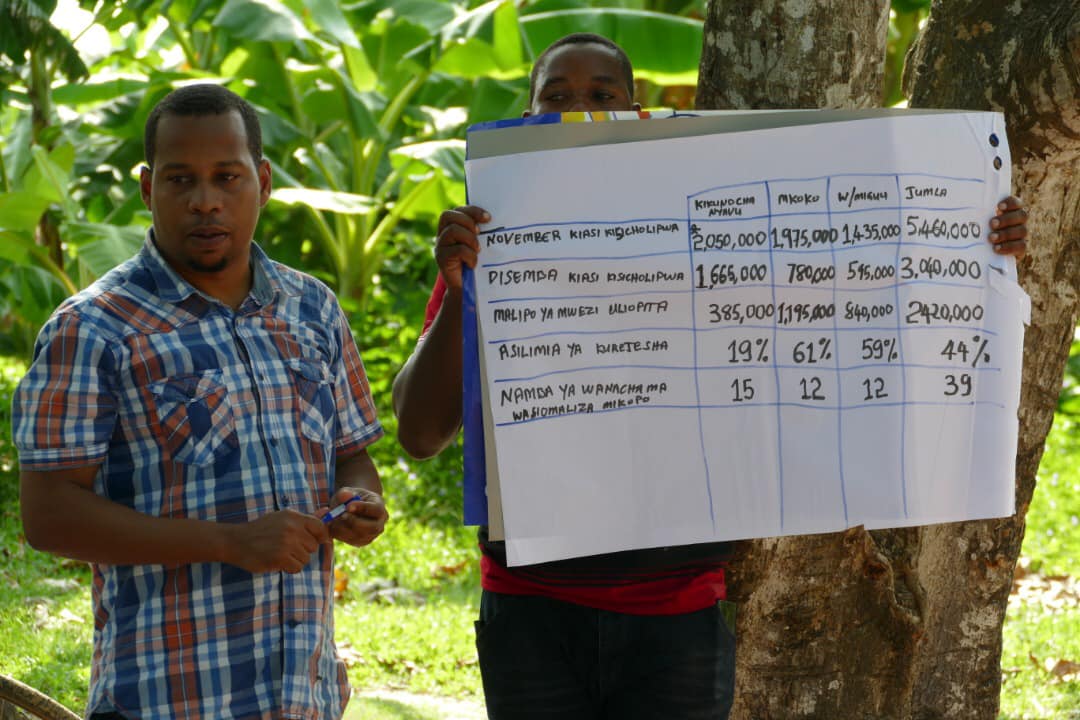

The Ward Fisheries Committee (WFC) is in Zanzibar the community institution responsible for local marine resources management. But they have often been weak: with little capacity and effectiveness.
The Eco-credit pilot was embedded in a wider project aiming to build a more effective co-management framework with strengthened WFCs.
Without a wider ongoing project in which an eco-credit scheme is nested, it would still be key to have an active community institution in charge of local natural resources management in some way, to link loans access to environmental conditions agreed by the community.
The community-level marine management plan sets priorities and objectives to manage natural resources. It is created by the WFC, facilitated by the project team if applicable. The plan can then serve as guidance for the environmental compliance and actions to be undertaken by the eco-credit groups’ members.
The local management plan can be started simple and focus on a few conservation/management targets with matching by-laws to enforce, and be further elaborated while the eco-credit scheme is running. In such cases the active participation of the broadest possible base of community members (especially those members of the eco-credit groups) is very important.
-
The legal and actual existence of recognised and active community institutions in charge of the local marine and coastal resource management.
-
Provisions in national legal framework for fisheries and marine conservation enabling communities to locally implement management actions (and enforce them).
-
Experience and support from the relevant authorities regarding the process to approve/formalise the by-laws decided by the responsible community institution.
- Where collaborative management for fisheries is new, it is imperative that fishery authorities do not feel threatened by the process and fully understand the benefits.
-
Sensitive facilitation during the process is important.
-
Roles and responsibilities of committee members should be clearly understood to aid in the election of the most appropriate persons to key positions.
-
Building capacity for conflict resolution is very important especially in a previously open access fishery or where regulations or enforcement have been absent or are very low.